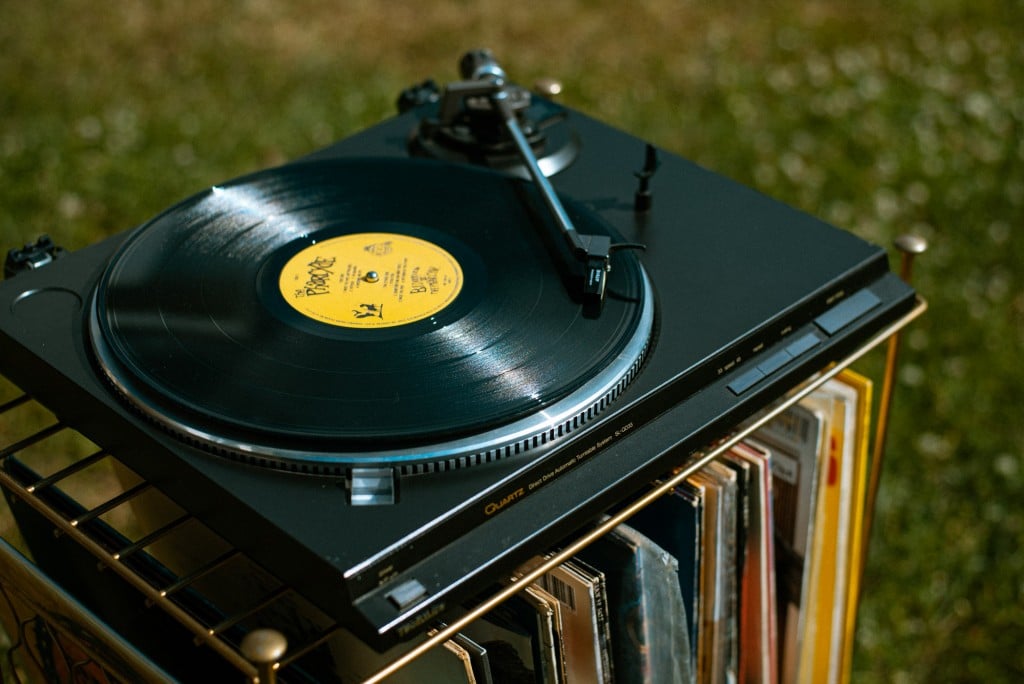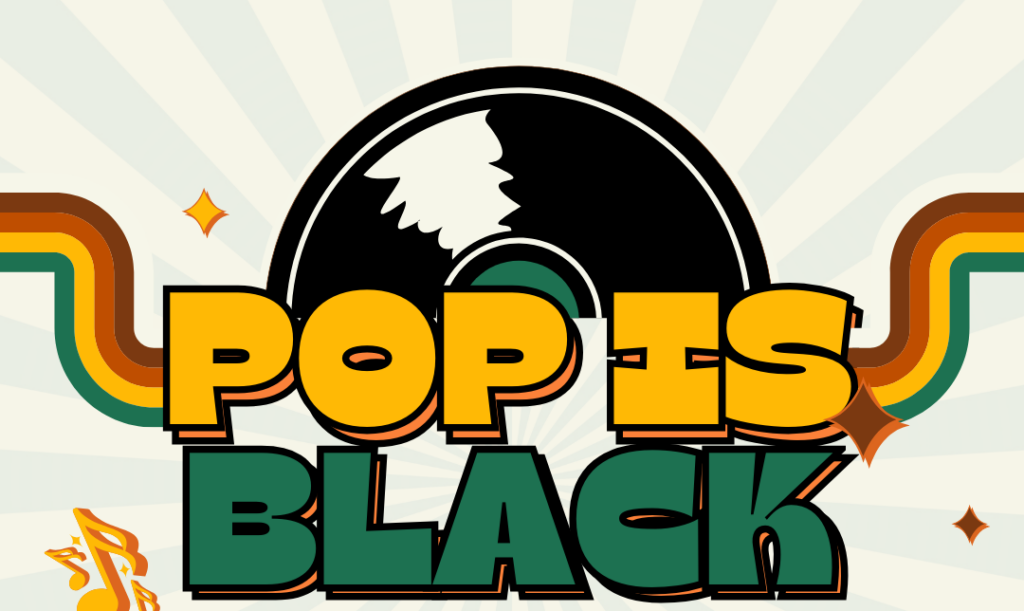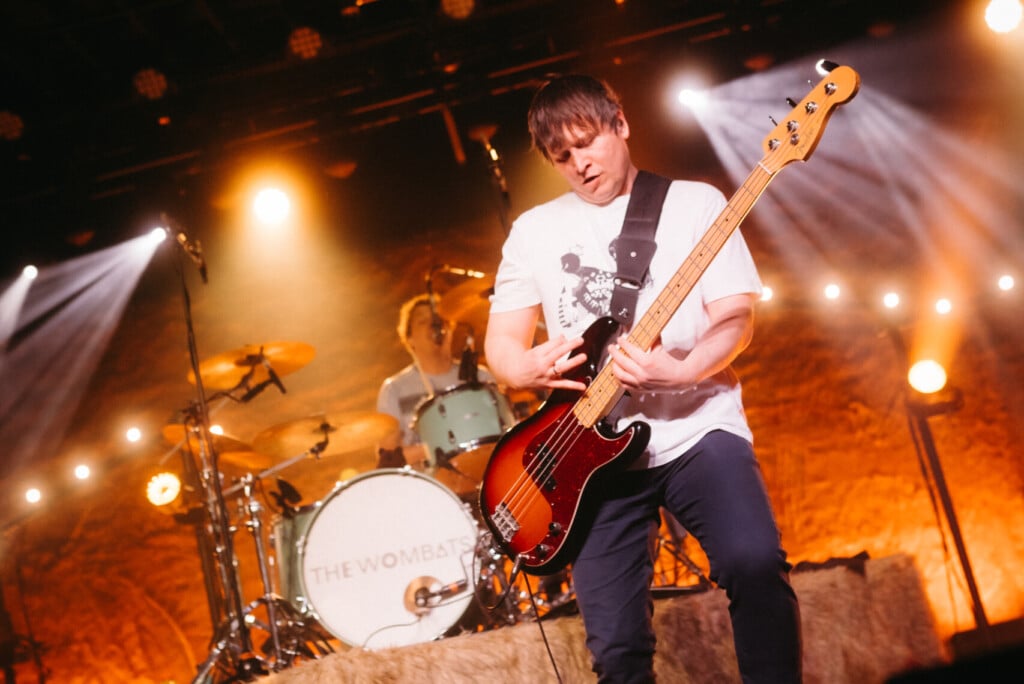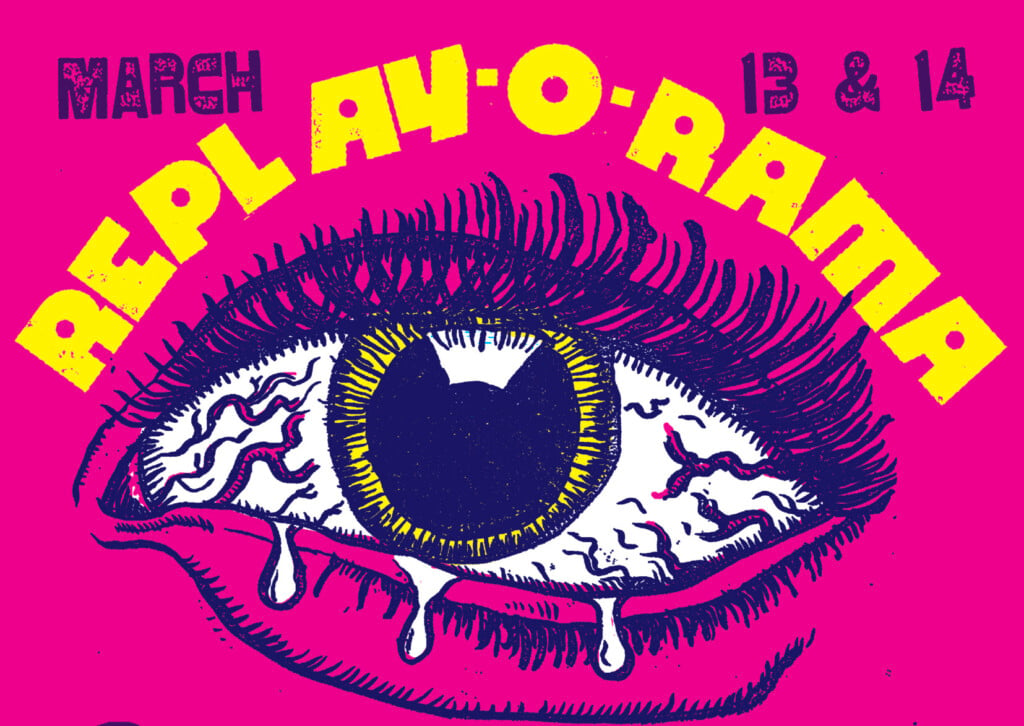Wonderlick brings Too Much Joy in a small, acoustic package to miniBar tonight
The duo of Jay Blumenfield and Tim Quirk should be well-known to fans of the power pop punkers Too Much Joy, who’ve been making music for nigh on four decades now.
You might not be aware of their duo, Wonderlick, but anyone who loves Too Much Joy’s clever lyricism and catchy hooks would do well to dive into this side project that’s more than just “two guys from the band making acoustic tunes.”
Wonderlick plays miniBar on Wednesday, August 6, and we hopped on Zoom with Jay Blumenfield and Tim Quirk to discuss their new album, Wonderlick Goes to War, as well as touring sans band.
The Pitch: There hadn’t been a Wonderlick album for almost 10 years, and then you put one out last year and now you’re putting out another one this year. What’s the reason for all of the productivity from this particular musical project?
Tim Quirk: Wonderlick has historically taken years between records. The second record came out like eight years after the first or something like that. And then we wanted to put the third super out right away. We were gonna record it with a band and do it really quick and dirty, but then just life intervened, and it ended up taking a couple more years.
I would say we’ve always wanted to release music more frequently than we do, but life keeps happening. The reason we finally, you know, are releasing an album a year is basically that the pandemic happened and the other band, the main band, Too Much Joy, started recording again.
We’d never officially broken up. We’d just really sort of stopped recording all that frequently. We made a real record and because of the pandemic, we had to do it remotely. Everybody was contributing their parts from home or three people on the East coast would get together, masked in a studio to lay down rhythm tracks.
I’d go down to Jay’s house, and his son would record us in his bedroom. We’d write remotely. I’d send words to all each member, each member would write music, we’d share tapes back and forth, and Jay and I loved working that way, and we made two Too Much Joy records that way. But then the rest of the band basically said, “We only wanna write if we’re in the same room anymore,” and I said, “Okay, well, look, I’m the logistics guy. I’m the guy who schedules shit and makes things happen. I don’t feel as strongly about that. If you guys wanna arrange writing sessions, you figure out how to make it happen.”
That was a couple of years ago. Nobody’s done anything since, so Jay and I just kept writing remotely and getting together to record. Some of these songs probably could have been Too Much Joy songs if the band had been okay with writing remotely. They’re just not.
Jay Blumenfield: Also, on the last Wonderlick album, we did a house tour for the first time and basically played our way across the country in people’s living rooms and backyards, acoustically, and first of all, that experience kind of blew our minds as far as just feeling good about touring and music and art and all of those things and Tim and I mind-melding over those drives. Plus, at night, there was something romantic and cool about writing new songs in a Motel 6 in the middle of nowhere. We started writing at the Red Roof in Gallup, New Mexico
Tim Quirk: Don’t make me have PTSD from that night.
Jay Blumenfield: Yeah, so by the time we were done with that tour, we had half an album, kind of half written, and plus we were very artistically energized by just interacting with people and hearing the songs acoustically for the first time, and it all sort of came together. I think it made Wonderlick as a project much stronger and more exciting and fulfilling.
Tim Quirk: Picking up on that, part of what was so mind-blowing about the house concert experience–we’d always just been like kids in a punk rock band. We always had amplifiers and volume to hide behind, drum risers to leap off of. I would say neither of us is a particularly skilled musician. Me far less than Jay. He’s an amazing writer. I wouldn’t say we suck, but I would say we were very leery about how we would come off as an acoustic duo without electricity and noise to hide behind.
So, when we first got together to start rehearsing a set for the house tour, Jay came up here to Oakland, and we were rehearsing in my living room. We originally thought like, “We’re gonna have to intersperse the songs with bits, so it’ll be half comedy and half music, and we’ll do puppets and maybe there can be magic,” and stuff like that.
As we started working on the songs, after a couple of days, we’re like, “Maybe we don’t need any bits, these sort of sound okay,” and at one point my wife walked into the room–and the thing about my wife is she’ll tell me when she thinks we suck. She says, “I hate that song” or, “Ooh, don’t do that one,” and she goes, “I don’t think you guys need the bits. This actually sounds pretty good.”
Then I went down to LA and we rehearsed in Jay’s house, and his wife had the same reaction. It’s a little offensive how surprised they both were that we were good, but we surprised ourselves.
Jay Blumenfield: I would say they were very, very surprised that we didn’t suck, which was insulting, but whatever.
Tim Quirk: Yeah, but we were surprised as well. Even at the end of that first weekend, I told Jay, “Maybe we have to stop being so self-deprecating. We should be like hip hop artists and just talk about how we’re the shit, we’re the best that there ever was,” and that’s not really our personality, so I don’t think we’ll ever get there, but what was amazing about the house tour was–I don’t know how to say this humbly–we were good, right? We were surprised by how good we were the first night. I knew within the first 30 seconds this was gonna work.
I have not been as scared to face an audience since we were in high school, and we played our first club show, and everyone in our high school came ’cause it was a local band in a club. I was terrified before I walked out on that stage, and then I’d never had stage fright until the first night we performed as an acoustic duo in front of people.
The weird thing about house shows is that two or three people out of the 20 who are there are diehard fans who want you to come to their town. Everyone else is just friends and neighbors, they coerced into coming. You have to win 95% of the audience over. We did it night after night after fucking night. It was kind of amazing.
Part of what was so profound about the experience was that we’ve played 500-person clubs, we’ve played 5,000-person theaters, we’ve done the occasional festival where you’re playing to 30,000 people. It’s really easy to be good in front of a lot of people. There’s just an energy that you get. It’s really hard to be good in front of five, right? We were having this weird experience where we felt like we were putting on the best performances of our lives.
The audience was responding better than even our diehard Too Much Joy cult fans are. It was even better than that. They weren’t even necessarily fan, preexisting fans. We were just winning them over in the moment, and yet, the shows were tiny, but they felt massive. The dichotomy between playing to 20 people, but it feels better than when we played to 35,000, how can that be? led into a lot of the lyrics on this record, which is just looking at how individual actions turn into a global phenomenon.
There’s a lot of stuff on Undisciplined that has that Too Much Joy feel, like “Otis Redding’s Disco Album.”
Tim Quirk: That was literally written for Mistakes Made. It never made the cut to get recorded.
I love that song because it sounds silly, but it’s earnest. That is the hallmark of what you all do musically, regardless of what the project is. That applied to something like “Niagara Falls, 1969.” I was not expecting a history lesson that is also currently pertinent, and that’s still fun in its political earnestness. Is that just how you are?
Tim Quirk: I think so. I would say that what you’re describing is, to me, like the best things about a Billy Bragg concert are the between-song banter. The lyrics of the songs themselves can feel very, very earnest, but when he is introducing them, when he is talking beforehand, he’s just joking with the crowd. You’re all buddies, and they’re not nearly as cringey as you would expect them to be. A lot of his lyrics are self-deprecating and making fun of himself for being so political, but you know, if you go to a Billy Brag concert and you walk out going like, “Wow, that was really thought-provoking and it has me motivated to go take action, but it wasn’t preachy,” it’s kind of amazing.
I would say my personal aesthetic is any song we’ve ever written or recorded; there’s gotta be some kind of a hook there. No matter how weird or experimental it is, there’s gotta be something. It should not be a chore to listen to. I’m not a big fan of music like that. I’m not saying you should never challenge your audience, I’m just saying that even when you’re challenging them, there should be a reason for them to keep coming back to the challenging thing. To me, whether it’s a melodic hook whether it’s a lyrical hook–listening to music, playing music, experiencing it in a crowd, it should be fun. Not mindless fun, but fun.
When adapting some of these songs to the two-man thing, what were the challenges of taking songs that, in some cases, had more people on them than if it had been a Too Much Joy record, and then stripping them down to guitar and voice?
Jay Blumenfield: One of the things I really like that makes me enjoy creating with Tim and doing Wonderlick is, is our sort of philosophy of you can’t say no, you have to try any idea. If we both try the idea and it sucks, then it doesn’t have to make the final mix.
Tim Quirk: You can never shit on someone’s idea.
Jay Blumenfield: I think that came from years of being in a band and record company and A&R guys and all of that stuff. It sort of sucked the joy out of making music. I hadn’t touched a guitar in almost 10 years before we wrote the first Wonderlick song many years ago. I had sort of just been soured on the music business.
It was my whole life and then I couldn’t even pick up a guitar. Honestly, I didn’t even listen to much music for a bunch of years. The first time [we got together] I even said, “Hey, let’s try something, but I’m not gonna play any guitar. I’ll just fuck around on keyboards and samples and loops and just try something new.” That’s how we started. But it was so fun, never saying no and just doing it for ourselves.
We weren’t sure whether we’re gonna put a record out or a song or whatever. We were just doing it, and then all of a sudden, I felt 17 again, like that first time when you’re playing in a band for the first time, and it just feels amazing and freeing, and that feeling came back.
Even though this is sort of the opposite, where it’s the most basic kind of old school way to do it, we’d never done that and there was something really exciting about feeling these songs and understanding what the songs were. Look, some songs did not work in this context, but one song, we played it acoustically for the first time, and I said to Tim, “That’s actually a good song. I like that.”
I’d never really heard it as a song. I’d heard it as sort of a vibe and sonic sounds that we had played, but then when it was just an acoustic guitar and the two of us telling a story, I was like, “Oh, this is cool. I’ve never done this before. This is exciting.” It was a little trial and error, and it still feels very naked, but I love that feeling of standing up there, being naked and knowing that it could, it could go south. It’s more dangerous in a weird way, and that’s fun, exciting, and creative.
Wonderlick plays miniBar on Wednesday, August 6, with support from Doomgong and Chewy Soliloqui. Details on that show here.





